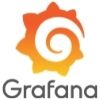
Grafana Course
Grafana is an open-source web platform designed to serve as a graphical interface for data, information, and logs originating from databases.
With Grafana, you can create dashboards, graphs, and essentially visualize any data available in your database or generated by software activities. This graphical interface is designed to be user-friendly, clear, and easy to read, understand, and monitor.
For example, when using the Grafana platform, you can connect to a database, retrieve and display data in a clear manner that helps track various aspects of software activity, such as load management, bugs, server activity, software integrity on different operating systems, and more.
Work Strategy
For example, when using Grafana, the work strategy primarily consists of three key parts:
Data Producer
This is the first part of the process, where the operating system or software generates the relevant data that we will later want to display in the interface. For example: Jenkins server, virtual machine, Kubernetes, or any other entity through which the software operates and is connected to the database.
Data Source
At this stage, the database contains the output data from the activity. This data can be a wide variety of details, specific to each software. For example: user details, information about their operating system, performed actions, and more.
Grafana - Visualization in the Interface
In the third stage, we use the Grafana Dashboard platform and connect it to the database. We retrieve information from it and display it in a graphical interface that is convenient and clear for reading, understanding, and monitoring. After displaying, additional actions can be performed, such as selecting specific days or times, viewing parallel activity in various tables of the database, and more.
With the connection to the database, Grafana allows for exceptional flexibility and the ability to present data in various ways and for a wide range of purposes, in order to harness the platform's maximum capabilities.
Grafana Studies as Part of DevOps Development Path
You can learn the Grafana course as an individual program or as part of a comprehensive curriculum for specializing in DevOps training and placement.
In the complete and comprehensive DevOps path for a career, you will also learn a wide range of relevant technologies and programming languages such as Linux, Python, Docker, Zabbix, Kubernetes, Jenkins, and more.
General Information about the Grafana Course
This course is hands-on and includes frontal lectures and practical exercises.
The duration of the course is approximately 25 academic hours.
The course includes:
- Class exercises accompanied by explanations, assignments, and solutions on the course website
- Course booklet
- Videos and presentations on the course website
Upon completing the course, each student will undertake a practical project that summarizes the knowledge acquired during the course.
The lectures are held once a week in the evening or morning hours.
Course Structure
Ch. 1
Introduction
Ch. 2
Installation
Ch. 3
Reverse Proxy Grafana with Nginx
Ch. 4
Data Source Integration
Ch. 5
Create out First Data Source
Ch. 6
Graph Panel : Visualization Options
Ch. 7
Graph Panel : Fields & Overrides
Ch. 8
Graph Panel : Transformations
Ch. 9
Dynamic Graphs from Variables
Ch. 10
Using Plugins
Ch. 11
Dashboard Design
Ch. 12
Custom workshops
Ch. 13
Tips & Tricks


Meet your instructor
Benny Cohen
Embedded Academy Founder and CEO
As a long-time veteran in the technology industry, Benny Cohen combines a deep passion for technology with extensive field experience. With a B.Sc. in Electronics Engineering and an M.Sc. in Communication Engineering, he has spent over 20 years developing software and hardware systems, including the last few years focusing on the cybersecurity industry. In addition to his role as the company founder & CEO, Benny also operates as a hands-on practitioner who specializes in penetration testing and has conducted significant security assessments for leading enterprises and security companies worldwide. His approachable teaching style and real-world expertise make learning both engaging and relevant.
What our graduates say
Our graduates work here
Blog
News, insights, and learning resources from Embedded Academy



.webp)
.webp)
















